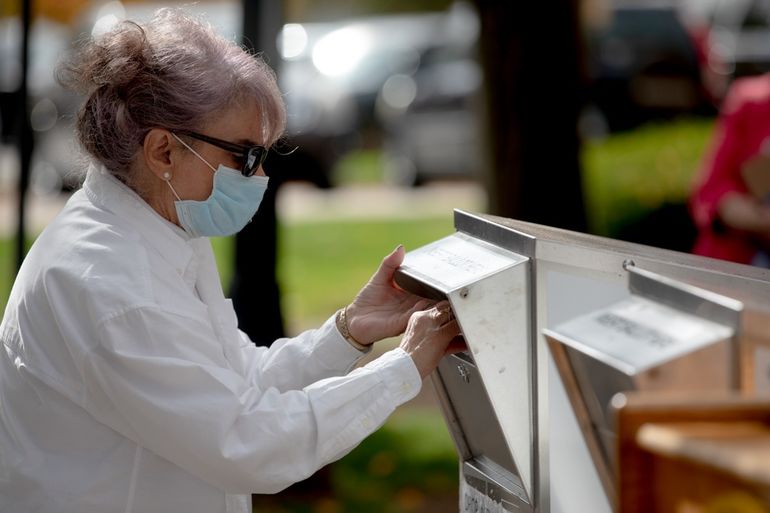Processing Your Payment
Please do not leave this page until complete. This can take a few moments.
-
News
-
Editions
-
- Lists
-
Viewpoints
-
HBJ Events
-
Event Info
- 2024 Economic Outlook Webinar Presented by: NBT Bank
- Best Places to Work in Connecticut 2024
- Top 25 Women In Business Awards 2024
- Connecticut's Family Business Awards 2024
- What's Your Story? A Small Business Giveaway 2024 Presented By: Torrington Savings Bank
- 40 Under Forty Awards 2024
- C-Suite and Lifetime Achievement Awards 2024
- Connecticut's Health Care Heroes Awards 2024
-
-
Business Calendar
-
Custom Content
- News
-
Editions
View Digital Editions
Biweekly Issues
- April 29, 2024
- April 15, 2024
- April 1, 2024
- March 18, 2024
- March 4, 2024
- February 19, 2024
- February 5, 2024
- January 22, 2024
- January 8, 2024
- + More
Special Editions
- Lists
- Viewpoints
-
HBJ Events
Event Info
- View all Events
- 2024 Economic Outlook Webinar Presented by: NBT Bank
- Best Places to Work in Connecticut 2024
- Top 25 Women In Business Awards 2024
- Connecticut's Family Business Awards 2024
- What's Your Story? A Small Business Giveaway 2024 Presented By: Torrington Savings Bank
- 40 Under Forty Awards 2024
- C-Suite and Lifetime Achievement Awards 2024
- Connecticut's Health Care Heroes Awards 2024
Award Honorees
- Business Calendar
- Custom Content
Democrats, Republicans split on absentee ballot access
 Yehyun Kim | CT Mirror
A voter casts an absentee ballot last year.
Yehyun Kim | CT Mirror
A voter casts an absentee ballot last year.
A divided state Senate voted shortly after midnight Wednesday for passage of legislation that would allow anyone concerned about contracting COVID-19 to vote by absentee ballot this year, the same option made available in last year’s elections.
Passage came on a 24-12 vote, with all Democrats in favor and all Republicans opposed. The bill now goes to the House.
Republicans said the rationale for easing access to absentee voting last year was the risk posed by the combination of high infection rates and the absence of a COVID vaccine, but the state now has vaccinated more than half of all adults, and infections are falling.
“We’re doing a great job,” said Sen. Dan Champagne, R-Vernon, who praised the vaccination rollout administered by the administration of Gov. Ned Lamont, a Democrat.
“This is creating a solution for a problem that is not there,” said Sen. Tony Hwang, R-Fairfield.
Democrats said they were confused by the Republican opposition to giving Connecticut voters an option widely available in other states. Sen. Mae Flexer, D-Windham, a lead sponsor, said the bill gives certainty to voting rules for municipal elections in May and November, regardless of what happens to case rates.
Sen. Saud Anwar, D-South Windsor, who is a physician specializing in lung diseases and critical care, said some voters still might be wary about going to the polls, even if infection rates continue to fall.
“You’re giving them an option,” he said.
Easing ballot access has become a wedge issue in much of the United States, fueled in part by former President Donald J. Trump’s baseless claims of widespread fraud in his loss last year to President Joe Biden.
Senate Republicans ignored the former president and his claims of widespread fraud, but they broadened the debate Wednesday night with calls for what they called reasonable measures to increase voter confidence in the integrity of Connecticut elections. They proposed amendments to require a photo ID to vote at the polls and to create a pilot program verifying the identity of voters using absentee ballots.
Democrats defeated the photo ID requirement, but accepted the pilot program on a voice vote. The program would require the verification of signatures on the outer envelopes used to cast absentee ballots in five communities of varying sizes.
Sen. Rob Sampson, R-Wolcott, called the photo ID requirement a “no-brainer.”
“We can join almost every other state in the country that has it,” Sampson said.
The constitution empowers the General Assembly to allow absentee ballot voting only in cases of “absence from the city or town of which they are inhabitants or because of sickness, or physical disability or because the tenets of their religion forbid secular activity.”
By statute, the state had long interpreted “sickness” as a voter’s illness, not a concern about getting sick in a pandemic. Last year, Lamont used his emergency powers to allow any voter in the August primary to vote by absentee for reasons of sickness during the pandemic. The legislature passed a law codifying the order and expanding it to the November election.
The Supreme Court upheld both Lamont’s order and the legislature’s temporary law, concluding that “sickness encompassed the existence of the pandemic and is not limited to an illness suffered by an individual voter.”
Aside from misgivings about that interpretation, Republicans strongly objected to the secretary of the state’s office mailing absentee-voter applications to every registered voter, rather than only to those who requested one.
Sampson offered an amendment Wednesday night barring unsolicited mailings of absentee ballot applications. It failed on a party-line vote after Flexer noted that there is no plan to do so this year.
Connecticut is one of 12 states without early voting at the polls and only one of three whose state constitutions currently bar it. In 2018, nearly 40 million Americans in 38 states and the District of Columbia went to the polls before election day.
Connecticut has two paths to placing constitutional amendments before the voters: Approval by a 75% super-majority of both chambers of the General Assembly places an amendment on the ballot of the next statewide election; successive legislatures can put an amendment on the ballot by simple majorities.
The legislature voted in 2019 to approve the early voting question with a simple majority in the Senate and a super-majority in the House. Passage this year by a simple majority will put the question before voters in 2022.
The absentee voting question will need support by 75% to get on the ballot next year.
According to research by the National Conference of State Legislatures, Sampson is wrong: Thirty-six states have laws requesting or requiring some form of identification at the polls, but only six states have strict requirements to show a photo ID before voting.
The bill debated Wednesday night is distinct from other measures that seek referendums on constitutional amendments that would allow the General Assembly to permanently allow no-excuse absentee voting and early voting. The constitutional amendments are expected to be debated Thursday by the House of Representatives.
Connecticut is unusual in that its constitution constrains the ability of the General Assembly to regulate the use of absentee ballots or allow early voting.

2022 Giving Guide
This special edition informs and connects businesses with nonprofit organizations that are aligned with what they care about. Each nonprofit profile provides a crisp snapshot of the organization’s mission, goals, area of service, giving and volunteer opportunities and board leadership.
Learn more
Subscribe
Hartford Business Journal provides the top coverage of news, trends, data, politics and personalities of the area’s business community. Get the news and information you need from the award-winning writers at HBJ. Don’t miss out - subscribe today.
Subscribe
2024 Book of Lists
Delivering Vital Marketplace Content and Context to Senior Decision Makers Throughout Greater Hartford and the State ... All Year Long!
Read Here-
2022 Giving Guide
This special edition informs and connects businesses with nonprofit organizations that are aligned with what they care about. Each nonprofit profile provides a crisp snapshot of the organization’s mission, goals, area of service, giving and volunteer opportunities and board leadership.
-
Subscribe
Hartford Business Journal provides the top coverage of news, trends, data, politics and personalities of the area’s business community. Get the news and information you need from the award-winning writers at HBJ. Don’t miss out - subscribe today.
-
2024 Book of Lists
Delivering Vital Marketplace Content and Context to Senior Decision Makers Throughout Greater Hartford and the State ... All Year Long!
ABOUT
ADVERTISE
NEW ENGLAND BUSINESS MEDIA SITES
No articles left
Get access now
In order to use this feature, we need some information from you. You can also login or register for a free account.
By clicking submit you are agreeing to our cookie usage and Privacy Policy
Already have an account? Login
Already have an account? Login
Want to create an account? Register
Get access now
In order to use this feature, we need some information from you. You can also login or register for a free account.
By clicking submit you are agreeing to our cookie usage and Privacy Policy
Already have an account? Login
Already have an account? Login
Want to create an account? Register






0 Comments